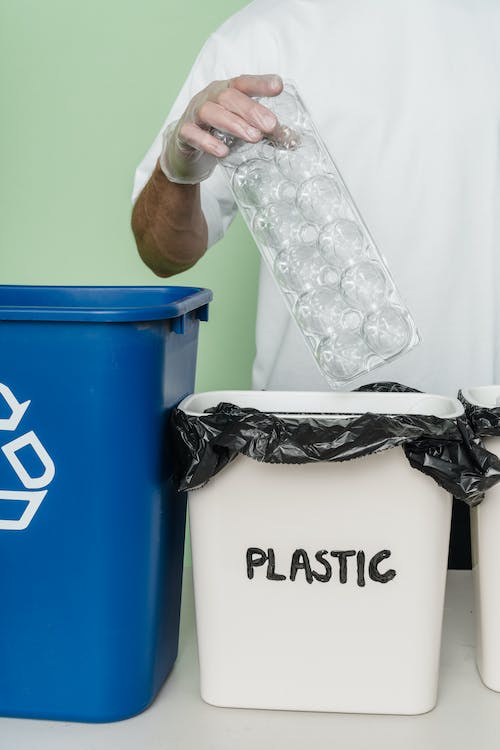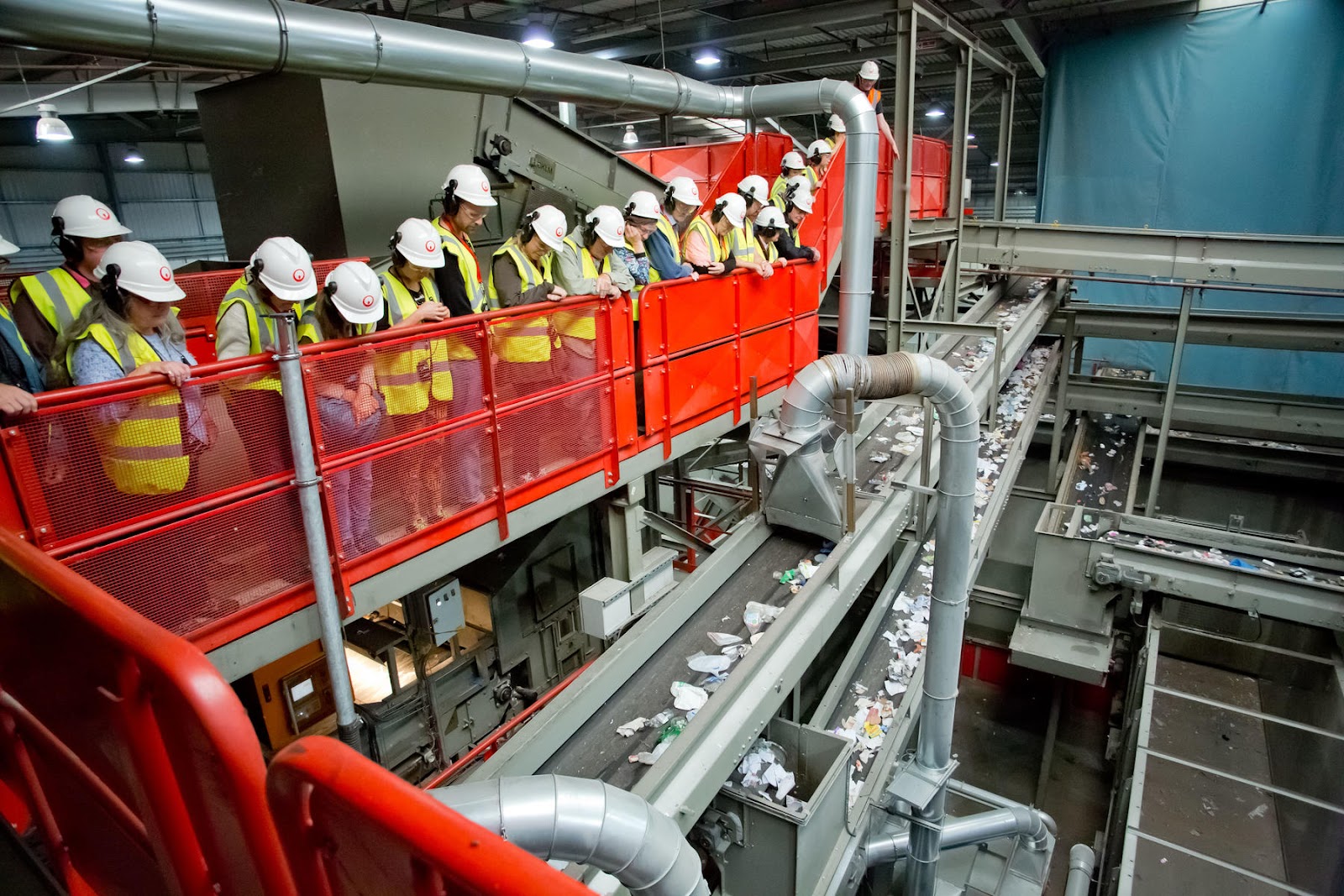|
|
In our quest for sustainability and addressing plastic waste, plastic recycling has emerged as a critical solution. This process involves transforming used plastic into new products or valuable materials, offering a promising path toward environmental conservation and minimizing the accumulation of plastic waste in landfills. Explore the future of advanced recycling and discover the best plastic recycling techniques in this insightful guide.
Understanding the Concept of Plastic Recycling

Plastic recycling is a multifaceted process encompassing various steps from collection and sorting to cleaning and reprocessing. Once collected, plastic waste undergoes meticulous sorting to ensure different types of plastics are separated efficiently. This segregation streamlines the recycling process and helps create high-quality recycled materials. After sorting, the plastics are cleaned to remove contaminants and impurities.
For instance, the PET (polyethylene terephthalate) plastic commonly used in beverage bottles is extensively recycled. Once collected, PET plastics are cleaned thoroughly to remove labels, caps, and any remaining liquid residue. This cleaning process is crucial for producing high-grade recycled PET (rPET) for new bottles or other applications.
After cleaning, the plastic waste is processed to create new products. This usually involves shredding the plastic into small pieces and then melting it. Once melted, the plastic can be molded into various forms, from packaging materials to outdoor furniture. These final products made from recycled plastic often demonstrate remarkable durability and quality.
The Environmental Significance of Plastic Recycling

The significance of plastic recycling extends far beyond reducing the demand for raw materials. It plays a vital role in environmental preservation. One primary benefit is the reduction of plastic waste in landfills. When plastics end up in landfills, they take centuries to decompose and release harmful greenhouse gases, contributing to climate change. By recycling plastic, we alleviate the strain on landfill capacities and mitigate the environmental impact of plastic waste.
Furthermore, plastic recycling conserves valuable natural resources. When we recycle plastics, we decrease the need for new plastic production, which relies on extracting fossil fuels like petroleum. This saves energy and reduces the environmental consequences of resource extraction and plastic manufacturing, such as pollution and habitat destruction.
Meeting the Demand for Recycled Plastic
Meeting the soaring demand for recycled plastic is paramount in the age of sustainability. As more businesses and consumers embrace eco-conscious practices, recycled plastics have gained immense popularity. Companies now recognize the importance of incorporating recycled materials into their products and packaging. For example, major beverage companies use rPET, derived from recycled plastic bottles, to produce new bottles. This closed-loop approach reduces the environmental footprint of their packaging.
The demand for recycled plastic has spurred innovation and investment in recycling technologies. Advanced recycling techniques, including chemical and pyrolysis, are emerging to handle previously challenging plastics. These methods break down plastics into chemical components, allowing for greater flexibility in repurposing them into new products.
Maximizing the utilization of recycled plastic as feedstock can significantly decrease the demand for new plastic production. This shift conserves resources and energy and promotes a circular economy for plastics. It’s a fundamental step towards a more sustainable future where plastics are valued, reused, and recycled, reducing their environmental impact while meeting the needs of a growing global population.
How Does Advanced Recycling Contribute to Sustainability?
An Overview of Advanced Recycling Technologies
Advanced recycling technologies are innovative methods that offer more efficient and effective ways to recycle plastic. These technologies go beyond traditional mechanical recycling techniques, including pyrolysis and chemical recycling. They enable the conversion of plastic waste into valuable products, including new plastic, fuels, and other chemical compounds.
Watch this YouTube video for advanced recycling technologies.
The Role of Chemical Recycling in Plastic Waste Management
Chemical recycling is a promising approach for managing plastic waste. It involves breaking down plastic polymers into their chemical building blocks, which can then be used to produce new plastic or other materials. This process offers the ability to recycle a wider range of plastic types, including multilayer and contaminated plastics.
Exploring the Benefits of Mechanical Recycling
Mechanical recycling involves sorting and processing plastic waste to create recycled plastic products. It is a more common recycling method and can be done using different techniques, such as washing, shredding, and extrusion. Mechanical recycling helps to save energy, reduce greenhouse gas emissions, and conserve resources by reusing plastic materials.
What are the Challenges and Opportunities in Plastic Recycling?
The Issue of Plastic Packaging and Its Impact on Recycling
Plastic packaging poses a significant challenge for recycling due to its complex composition and the presence of various materials. Many plastic packaging items are designed for single-use, which leads to a higher volume of plastic waste. However, advancements in sorting technologies and new recycling techniques are addressing these challenges and improving the recycling rates for plastic packaging.
Emerging Recycling Technologies to Tackle Plastic Waste
The recycling industry is constantly evolving, with new technologies emerging to tackle the issue of plastic waste. These technologies include innovative sorting systems, advanced separation techniques, and improved recycling processes. Investing in research and development, we can find more efficient and sustainable ways to recycle plastic waste.
Maximizing the Use of Recycled Plastic as Feedstock
One of the opportunities in plastic recycling is maximizing the use of recycled plastic as feedstock. By creating a market demand for recycled plastic, we can encourage more recycling facilities to collect and process plastic waste. This will help divert plastic from landfills and reduce the need for virgin plastic production, ultimately contributing to a more circular and sustainable economy.
How can We Reduce Plastic Waste Ending Up in Landfills?
The Importance of Diverting Plastic from Landfills
Diverting plastic waste from landfills is crucial for reducing the environmental impact of plastic pollution. Landfills are not designed to properly manage plastic waste, which can leach harmful substances into the soil and water. By prioritizing recycling and waste reduction efforts, we can reduce plastic waste in landfills and mitigate its negative effects.
Exploring the Metrics of Plastic Waste Generation
The amount of plastic waste generated globally is staggering. According to the American Chemistry Council, the global plastic industry produces millions of metric tons yearly. To address this issue, it is important to develop effective recycling methods and promote the use of recycled plastic in various industries to reduce the demand for new plastic.
Addressing the Growing Demand for Recycled Plastic
As awareness of the importance of sustainability grows, so does the demand for recycled plastic. Companies and consumers are increasingly seeking products with recycled content, creating a market for recycled plastic materials. We can encourage the transition to a more sustainable and circular economy by meeting this demand and providing high-quality recycled plastic products.
What is the Future of Plastic Recycling?
The Role of Advanced Recycling in the Circular Economy
Advanced recycling technologies will play a vital role in achieving a circular economy for plastics. These technologies enable the conversion of plastic waste into valuable resources, reducing the reliance on virgin plastic and promoting a closed-loop system. By implementing advanced recycling techniques, we can create a sustainable future where plastic waste is minimized and resources are conserved.
Advancements in Plastic Recycling Technologies by 2022
Plastic recycling is constantly evolving, and advancements in recycling technologies are expected in the coming years. These advancements might include improved sorting and separation techniques, more efficient conversion processes, and increased collaboration between industry stakeholders. These developments will contribute to higher recycling rates and a more sustainable plastic recycling industry.
Collaborative Efforts in Achieving Sustainable Plastic Recycling
Achieving sustainable plastic recycling requires collaborative efforts from various stakeholders, including government entities, recycling organizations, manufacturers, and consumers. By working together, we can develop effective policies, invest in research and development, improve recycling infrastructure, and raise awareness about the importance of plastic recycling. These efforts will pave the way for a future where plastic waste is a valuable resource rather than a burden.
Conclusion
In conclusion, exploring advanced recycling and the best plastic recycling techniques offers hope for a greener world. Plastic waste is a big problem, but smart recycling methods can help. Recycling plastic helps our environment by saving space in landfills and reducing pollution. It also preserves natural resources and uses less energy than making new plastic.
As more people and businesses want recycled plastic, we can make a better system. We need to use more recycled plastic and make less new plastic. This will lead to a healthier planet for the future.












